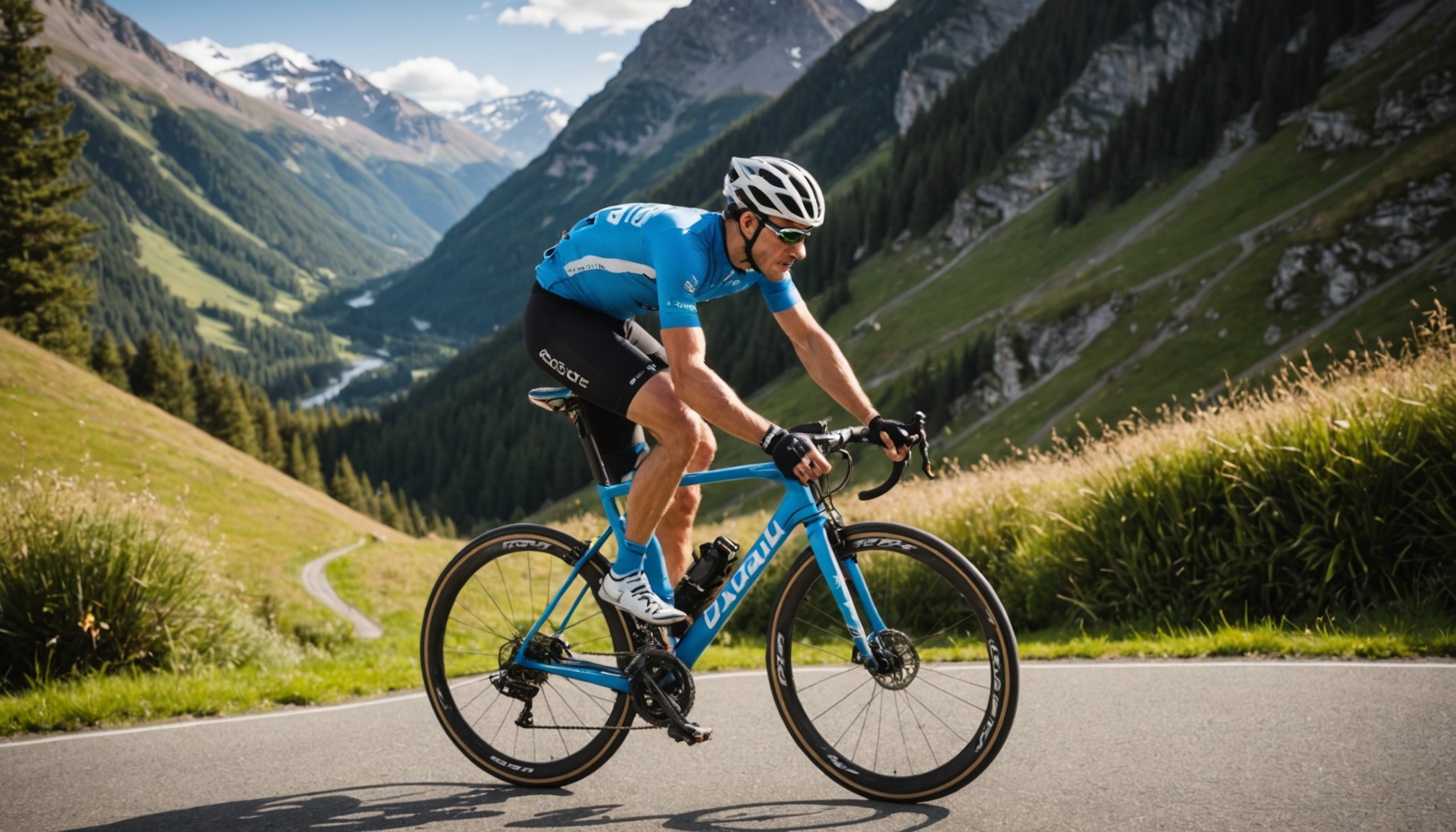Cyclists seeking peak performance often overlook the power of smart carbohydrate intake. Carbs fuel your rides, enhancing endurance and recovery. Understanding which carbohydrates to prioritize and when to consume them can significantly impact your cycling efficiency and energy levels. This guide delves into strategies for optimizing carb intake, ensuring you're primed for every challenge on the road or trail. Maximize your potential and transform your cycling experience with thoughtful nutrition.
Understanding Carbohydrates in Cycling
Carbohydrates are crucial for cyclists as they serve as the primary source of energy during rides. Carbohydrates are broken down into glucose, which muscles use for fuel. When glucose is not immediately needed, it is stored in the form of glycogen in the liver and muscles. This stored glycogen is essential for endurance, allowing cyclists to maintain energy levels over long distances.
Topic to read : Unlocking Peak Performance: Leveraging Biofeedback Techniques for Elite Archers
There are two main types of carbohydrates: simple and complex. Simple carbohydrates, such as sugars, are quickly absorbed by the body, providing an immediate energy boost. This can be beneficial for short, intense bursts of activity. On the other hand, complex carbohydrates, found in foods like whole grains and legumes, are digested more slowly. They provide a sustained energy release, making them ideal for long rides.
For cyclists, maintaining adequate glycogen storage is vital. Glycogen acts as a reserve that can be tapped into when the body's glucose levels start to deplete. Without sufficient glycogen, cyclists may experience fatigue and a decrease in performance. Therefore, a balanced intake of both simple and complex carbohydrates is recommended to optimize energy levels and enhance cycling performance.
Also to read : Unlocking Elite Performance: Mastering Sleep Optimization for Track and Field Athletes
Timing Your Carbohydrate Intake
Understanding carbohydrate timing is crucial for cyclists aiming to maximise performance and recovery. Pre-ride nutrition plays a significant role in ensuring your glycogen stores are adequately filled. Consuming a meal rich in complex carbohydrates, such as whole grains, 2-3 hours before your ride can provide a steady energy supply. For an extra boost, consider a small snack of simple carbohydrates like a banana, 30 minutes before starting.
During the ride, maintaining energy levels is key. Mid-ride carbohydrate consumption can help sustain performance, especially on longer routes. Energy gels or sports drinks are convenient options that provide quick-digesting sugars to keep you going. Aim to consume these every 45-60 minutes to avoid hitting the dreaded "wall."
Post-ride nutrition is vital for recovery. Consuming carbohydrates within 30 minutes of finishing helps replenish glycogen stores efficiently. Pairing these with protein can also aid muscle repair. Opt for a balanced snack like a smoothie with fruits and yoghurt, or a sandwich with lean protein. By strategically timing your carbohydrate intake, you can enhance your endurance, performance, and recovery.
Quantifying Carbohydrate Needs
Understanding your carbohydrate requirements is essential for optimizing cycling performance. The amount needed varies significantly based on cycling intensity and duration. For instance, a leisurely ride demands fewer carbohydrates than a high-intensity session.
Carbohydrate Calculation
To calculate your energy needs, consider both the intensity and duration of your activity. For moderate rides lasting 1-2 hours, aim for 30-60 grams of carbohydrates per hour. For high-intensity or endurance rides exceeding 2 hours, increase intake to 60-90 grams per hour. This ensures a steady supply of glucose to fuel muscles.
Endurance vs. Sprint Cycling
Endurance cycling typically requires more carbohydrates due to prolonged energy demands. In contrast, sprint cycling focuses on short, explosive efforts, necessitating rapid carbohydrate availability for quick energy bursts. Adjust your intake accordingly to match these differing energy needs.
Training Phase Recommendations
Carbohydrate needs also fluctuate across training phases. During the base phase, focus on building glycogen stores with complex carbohydrates. In the build phase, balance simple and complex carbohydrates to support increased intensity. As you peak, prioritize quick-digesting carbohydrates to maximize performance. Tailoring your carbohydrate intake to these phases can enhance your cycling efficiency.
Practical Meal Planning for Cyclists
Creating an effective meal plan is essential for cyclists to ensure optimal cycling nutrition and sustained energy. Incorporating carbohydrate-rich foods into your daily meals can significantly enhance performance and recovery.
Sample Meal Plans
Consider these meal ideas to optimize your carbohydrate intake:
- Breakfast: Start your day with oatmeal topped with fruits and nuts. This provides a balance of simple and complex carbohydrates for sustained energy.
- Lunch: A whole grain pasta salad with vegetables and lean protein offers a robust carbohydrate base for midday refueling.
- Dinner: Quinoa with roasted vegetables and grilled chicken ensures a hearty supply of carbohydrates and essential nutrients.
Carbohydrate-Rich Foods
Incorporate these foods into your diet for effective pre and post-ride nutrition:
- Whole grains like brown rice and quinoa
- Starchy vegetables such as sweet potatoes
- Fruits, including bananas and berries
Tips for Incorporation
- Snack on energy bars or fruit between meals to maintain glycogen levels.
- Pair carbohydrates with protein for balanced meals.
- Adjust portion sizes based on ride intensity and duration to meet your energy needs.
By strategically planning your meals and snacks, you can effectively support your cycling endeavours.
Case Studies and Insights from Experienced Cyclists
In the world of cycling, real-world examples provide invaluable insights into how carbohydrate strategies can significantly impact performance. Many elite cyclists have shared their experiences, highlighting the importance of tailoring carbohydrate intake to meet specific energy demands.
One case study involves a professional cyclist who adjusted their carbohydrate consumption during a training camp. Initially, they relied heavily on simple carbohydrates, which led to energy spikes and crashes. By incorporating more complex carbohydrates into their diet, they noticed a marked improvement in endurance and sustained energy levels throughout long rides.
Performance insights from such experiences underscore the importance of a balanced approach. Cyclists often find that a combination of simple and complex carbohydrates helps maintain consistent energy, especially during high-intensity training sessions.
Expert advice also sheds light on common carbohydrate-related myths in cycling. One prevalent myth is that loading up on carbohydrates the night before a race is sufficient. However, experts recommend a consistent carbohydrate strategy throughout training to optimize glycogen stores.
These insights and expert opinions emphasize the critical role of carbohydrates in cycling, offering practical guidance for both amateur and professional cyclists.











